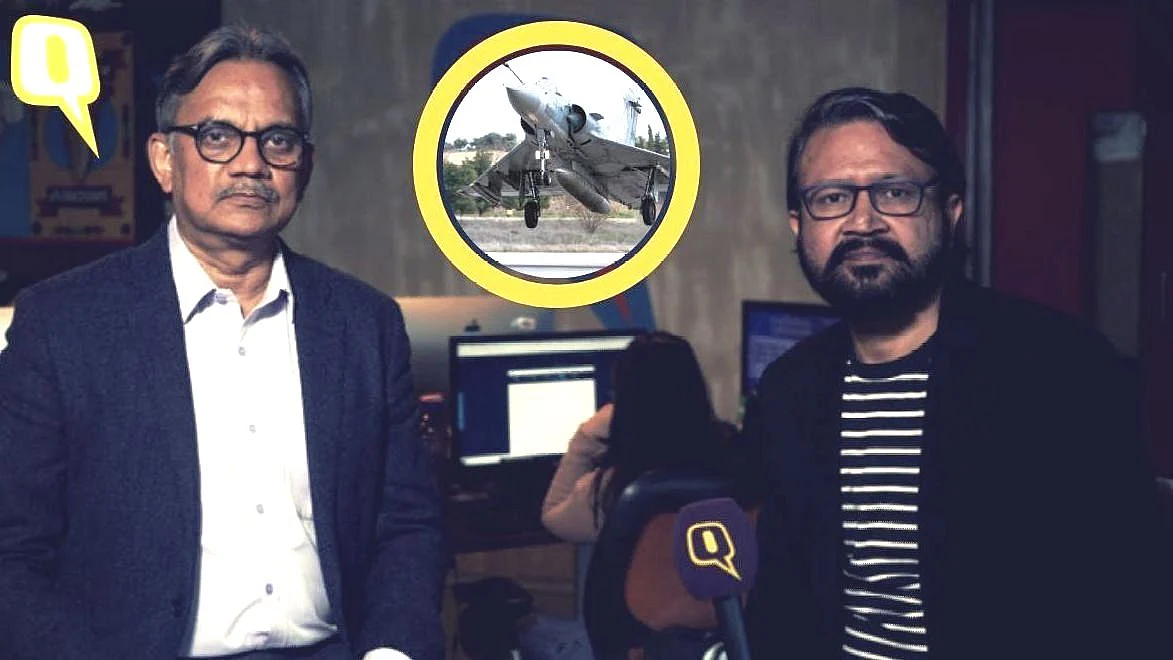Watch: As Tensions Soar, What Next for India & Pakistan?
Will the India and Pakistan choose to escalate or de-escalate their actions?

advertisement
The Ministry of External Affairs on Wednesday, 27 February, lodged a strong protest with the acting High Commissioner of Pakistan against unprovoked act of aggression by Pakistan against India. In a statement, India confirmed that the missing pilot was in Pakistani custody and that the government expected his immediate and safe return.
Earlier in the day, in a joint press briefing, the MEA and the Indian Air Force said that India lost one MiG-21 and shot down a Pakistan fighter aircraft. The ministry, at that time, confirmed that one IAF pilot was missing in action.
Amid rising tensions between India and Pakistan, on Day 2 after the Balakot air strikes, The Quint’s Editorial Director Sanjay Pugalia and Hindi Quint Editor Neeraj Gupta discuss looming questions – will the two countries choose to escalate or de-escalate their actions?
On IAF Pilot Captured by Pakistan
The IAF pilot in Pakistan’s custody will be governed under the Geneva Convention of 1929 – which specifies that the Prisoners of War (POWs) are usually members of the armed forces of one of the parties who fall into the hands of the adverse party.
POWs cannot be prosecuted and must be returned to their country once the hostilities end, the convention states.
On Imran Khan’s Call for Dialogue
Pakistan Prime Minister Imran Khan invited India for dialogue, stating that “things might get out of control”, if the situation escalates.
Analysing Khan’s speech, Pugalia said, that it must be treated with caution.
(At The Quint, we question everything. Play an active role in shaping our journalism by becoming a member today.)